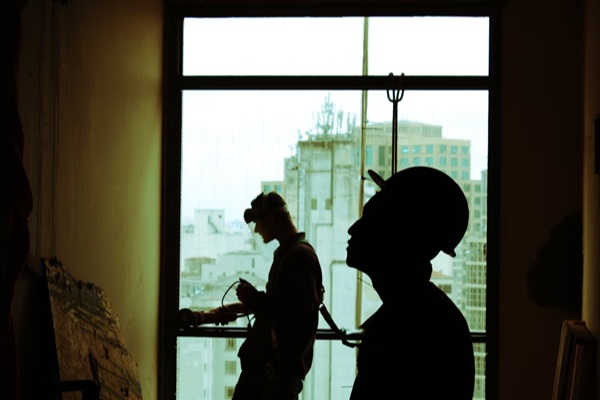The barriers to work-life balance for tradies and how to overcome them
Tradies in industries like plumbing, welding and carpentry have battled a poor work-life balance for ages. It’s possible to overcome it by collaborating with employers and contracting firms. It’s even more important for smaller organisations where employees can easily become overworked. These are the most prevalent obstacles to a well-structured work-life balance for tradies and ways to combat them.
Long and inconsistent hours
Approximately two-thirds of women in Australia’s rural mining industry have a poor work-life balance. One factor for this is minimal to no access to carer and parental leave. Additionally, only 4% can work part-time.
Before committing to a position or job, tradies must set boundaries with employers and contractors by asking questions about benefits and working expectations. Many go long hours without breaks or the privilege to reduce work obligations or personal commitments if necessary.
Employers can support scheduling boundaries by implementing time-tracking software and data analytics. These combined technologies will generate more accurate project estimates, making workers’ schedules more realistic. This practice demonstrates respect for the boundaries workers set.
Fatigue from demanding labour
Exhaustion from physical labour affects the body and mind. Studies of the construction sector prove prolonged strains lead to increased depression and anxiety, lower productivity and more frequent chronic pain. Labourers should regularly stretch during the workday to discourage aches, listening to the body’s cues. Everyone should increase their health and wellness awareness to step back from straining work if needed.
Companies can also offer plenty of paid breaks. Benefits packages should also incorporate wellness programs and sufficient health insurance. Management should encourage using these to their fullest extent instead of discouraging employees from taking time off to care for themselves.
Difficulty disconnecting
The constant feeling of being on call or in work mode during leisure, vacation or family time is disorienting. Tradies need to establish post-work rituals to transition gracefully to home life. If you have a work phone or laptop, keep these out of family areas as frequently as possible.
It’s difficult to keep job-related stress at the office. This anxiety also compromises a tradie’s emotional resilience. It’s part of the reason 12% of construction employees struggle with alcohol and 11.6% with drugs.
Organisations must set boundaries with clients to prevent overworking their contractors. Designing calendars with enough holidays and off-call days will help people create a healthy barrier between their home life and professional life.
Financial concerns
Many tradies are encouraged to work overtime or take on additional projects to earn more. These burdens are unnecessary if companies pay their staff above living standards and outpace inflation with their contracts. Tradespeople who control their hourly rates should set them to a reasonable yet high standard. The precedent keeps work-life balance healthy and puts individuals in jobs that value their time.
Additionally, accounting teams can adjust budgets and do market research on factors impacting the cost of living. They should consider inflation, merit-based raises and benefits. Companies can boost their efficiency and quality, earning a reputation for premium services worthy of a higher price tag.
Social isolation
Tradespeople frequently travel for long periods. This separates them from family and friends, who may be their primary source of stress relief when their work and personal life are out of balance. If travelling for a job, schedule times to connect with support systems when off the clock.
This isolation can lead to loneliness and individualistic mindsets that discourage seeking help. These feelings could make people leave trade work altogether, or they may create tension among colleagues if some feel unsupported and alone. Employee retention increases when there is cohesion across teams, so prompting authentic team-building opportunities is crucial for collaboration and mental wellness. Being part of a strong team can make people feel part of a whole, alleviating loneliness and helping them feel more fulfilled in their careers.
Organisations can accomplish this by creating industry-related groups and clubs so workers can engage with like-minded individuals when away from home. These can be advocacy or hobby focused, giving tradies something else to focus on when they finish their day.
Minimal professional support
Many years of harmful habits can reinforce the culture surrounding trade professions. People are discouraged from openly communicating their struggles with colleagues. Contractors may fear it signifies weakness and want to avoid mental health stigmas.
Staff must challenge negative stereotypes associated with contractor culture and discuss difficulties with co-workers. The camaraderie could eventually lead to open, productive discussions with employers. If this culture changes, employees can offload work concerns and support one another during difficult assignments.
Managers should also participate in revising the company culture. They can ask for honest employee feedback about work-life balance and their emotional states. Incorporate suggestions for flexible scheduling, mental health support and more into operations.
Reclaiming balance as a trade professional
Contractors across sectors deserve respect. Their employers should provide attentiveness and benefits that promote a healthy work-life balance. Eventually, the negative reputation of these fields will become a distant memory, encouraging more people in Australia and the world to see the benefits of committing to these skill-driven careers.

